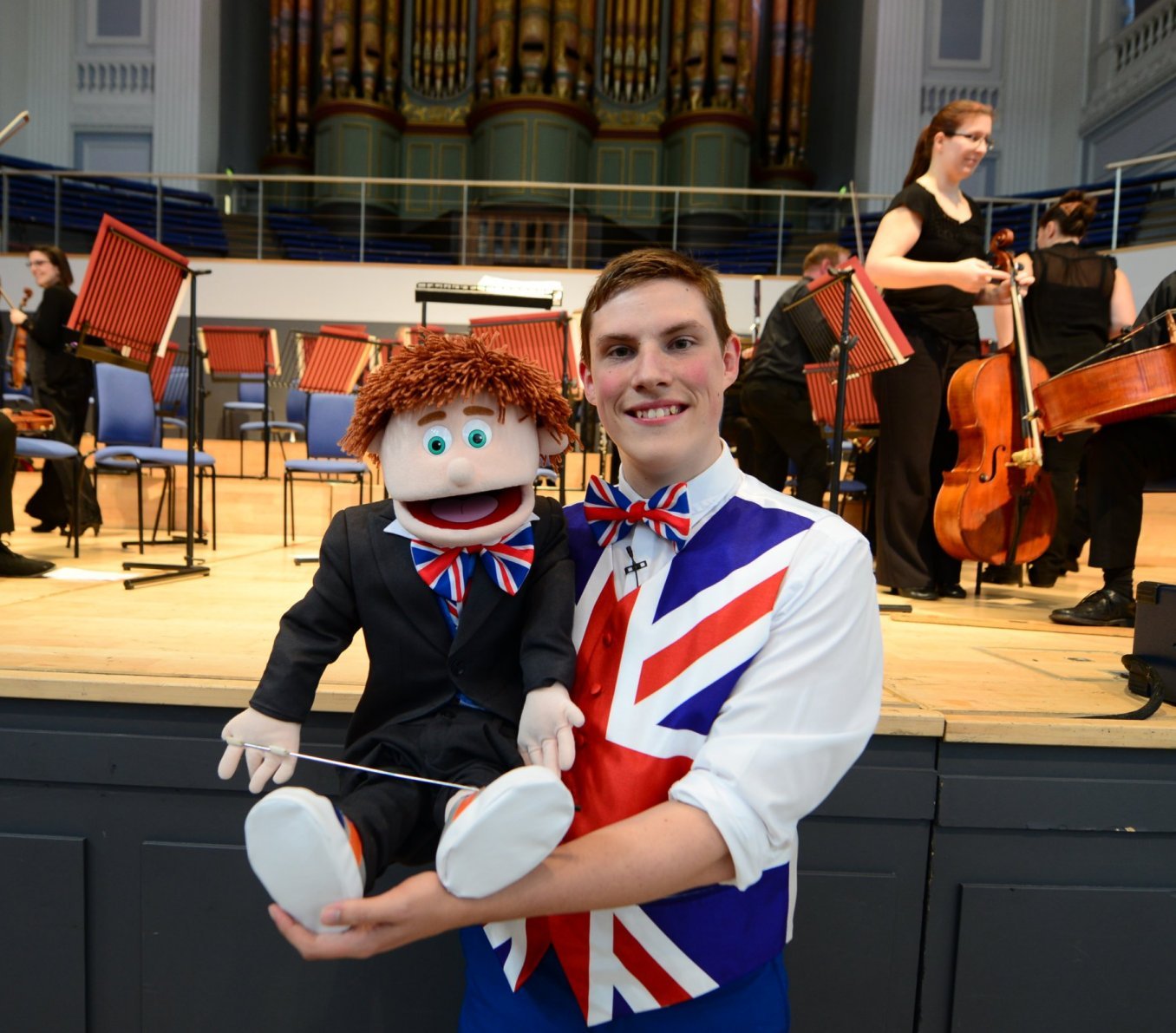
James Rowney and Little Jim before an orchestral concert
Music without fear
Following the success of relaxed theatrical performances, Chris Proctor explains how Birmingham’s Town Hall & Symphony Hall has gone about staging relaxed concerts.
Children with disabilities should have access to the same opportunities as their peers. It sounds simple, but sadly it isn’t. As two concert venues and an arts and education charity, at the Town Hall & Symphony Hall we believe in providing opportunities for everyone to engage in the arts.
In 2014 we began to programme a range of relaxed performances (productions that are adapted for people with autism or a sensory and communication disorder). I won’t bore you with bold statements and fluffy marketing words such as ‘vital’ or ‘life-changing’, but in this case, for a family with a member who is on the autistic spectrum, to experience a live performance without fear is exactly what these performances are.
This training not only helped make sure our team knew how to react, but it also meant they gained invaluable insight
About 18 months ago we made the decision that simply adapting a performance of what is normally a theatrically focussed family show wasn’t enough. We wanted to be able to do what we do best – provide live music performed in a concert hall.
We decided to curate our own concert and teamed up with Autism West Midlands to help bring it to reality. They asked their family networks what they’d like to see and hear as part of a new concert, and we tried our best to accommodate as many requests as possible.
A trip to see a live performance is, for most people, fun and exciting and an opportunity to spend quality time with family and friends, but for families with a member on the autistic spectrum it can be a challenge. Unfortunately, what should be fun can become a frightening sensory overload, with these experiences often becoming incredibly stressful, emotionally draining and fraught with fear.
Many aspects of a performance can be overwhelming, from busy foyers to how the lights are used and performance volume levels, right down to the applause. When you consider any reactions that may occur mid-performance, contrary to standard concert etiquette, it can be an intimidating and embarrassing experience. Suddenly the words fun and exciting don’t seem to fit.
Autism awareness training
With this in mind, it’s easy to see why adaptations and preparation become so important, whether it’s through training, seeking advice or changing the environment. There’s a lot to consider. Through autism awareness training we learnt how to prepare our venue and team for delivering a relaxed performance as smoothly as possible.
Our team learnt what an autistic spectrum condition is, how to spot signs of distress and how to react and assist if any situations arise. This training not only helped make sure our team knew how to react, but they also gained invaluable insight and confidence in providing the right environment for children and their families. They are now able to approach these events without stress, making for a much better experience for both our team and customers.
Changes to the environment
We also had to make changes to Town Hall. In order to create a stimuli-free environment, we streamlined public areas, moved furniture and removed anything bright and visual. We kept the doors open and were able to create a central aisle for wheelchair users and carers, allowing free and easy movement in the hall.
We also created breakout spaces, one chill-out area equipped with activities and comfortable seating, and a second quiet zone, free from stimuli for audience members who may need a break. These changes have had a huge impact on the venue’s suitability for relaxed performances and are much appreciated by the audience.
Creating a sense of familiarity is also key. One of the ways we do that is by helping people familiarise themselves with our venue and performances with a range of materials. We surveyed some of the audience and found that 68% said that the visual guides for carers and parents were highly useful.
Autism West Midlands created Google Street View virtual tours of Town Hall and Symphony Hall, both of which are now available to view online.
The relaxed concert
With all of this training and understanding, we created ‘The Relaxed Concert’ featuring James Rowney, Little Jim and the Orchestra of the Swan. James is a young ventriloquist who is himself autistic and Little Jim is his puppet. The pair hosted the concert.
They took the audience on a musical adventure weaving through musical genres, special interests and meeting members of the orchestra along the way. At the end, there was a Q&A for inquisitive children, followed by an opportunity for the audience to meet the orchestra and have a go on some of the instruments.
Autism Charter
Following the success of this project, we’ve signed the Autism Alliance’s Autism Charter, which recognises that we are an autism-friendly venue. We’re only a small part of a much bigger picture and we hope that one day there will be no need to label a performance as ‘relaxed’, and that any reaction will be embraced and encouraged.
Is it worth it? Well, 93% of children who filled in their own surveys said that the concert made them feel happy or very happy, so yes, I’d say it was definitely worth it.
Chris Proctor is Programme Manager of Town Hall & Symphony Hall.
www.thsh.co.uk
Join the Discussion
You must be logged in to post a comment.